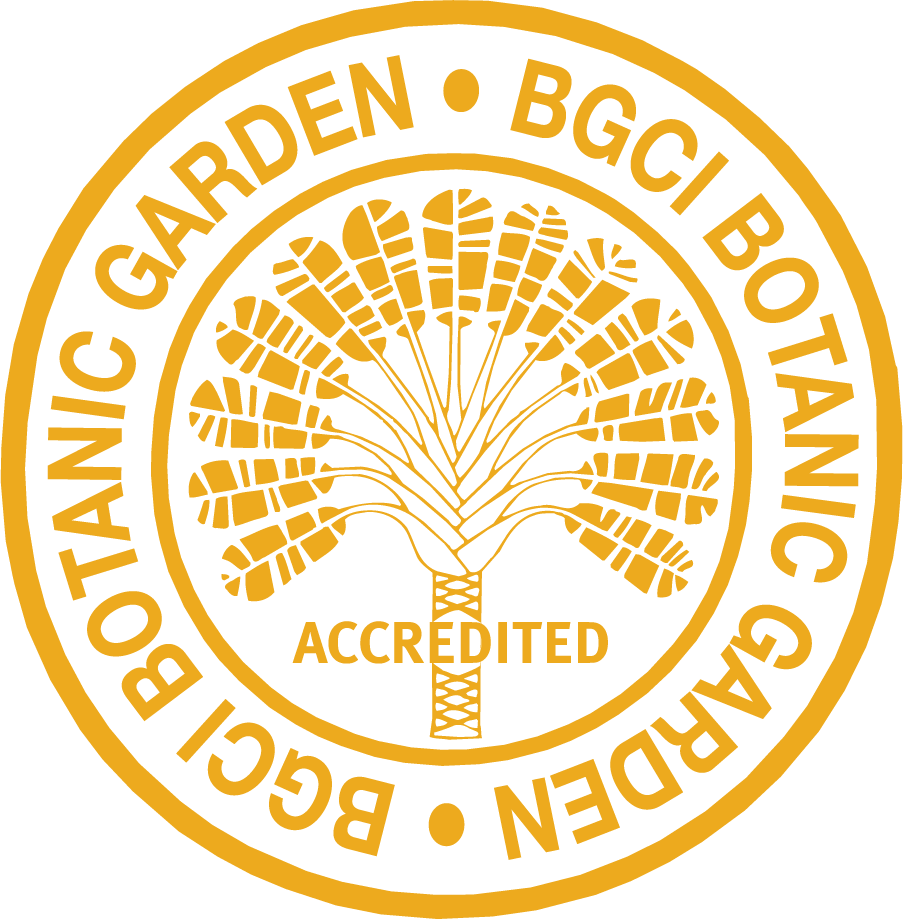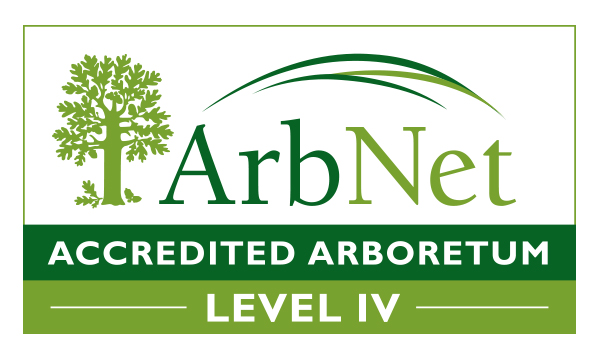
The Arboretum doesn't offer any undergraduate courses on its own, but the university teaches a variety on topics such as ecology, pesticides and the environment, plants and human use, apiculture and environmental stewardship.
Several UofG undergraduate courses have previously included fieldwork lab components within the Arboretum. Below is a list of all of these courses. Whether or not these courses include a fieldwork lab component is subject to change depending on professor, class size, and season.
Check out a few of the amazing projects undergraduates have done at The Arboretum previously!
BIOL

BIOL*2060 - Ecology
This course discusses the ecology of plants, animals, fungi and bacteria as individual organisms, interacting populations, communities and ecosystems. Lectures and discussion groups are used to demonstrate the difficulty of interpreting ecological data derived from field studies. The value of laboratory-based research in ecology will also be discussed. The course will be important for anyone who wishes to understand what we know and need to know about the way ecological systems work.
BIOL*3010 - Lab and Field Work in Ecology
This course emphasizes field and laboratory work in ecology. Students will gain experience with experimental designs, sampling, analysis and interpretation of data collected to answer ecological questions. Local field sites will be used to run in-course experiments. Critical thinking about ecological issues relevant to society will be emphasized.
BIOL*4110 - Ecological Methods
This course will examine the theoretical and practical aspects of research methods in ecology. Emphasis will be placed on experimental design, sampling, population estimation, statistical inference, and characteristics of producers and consumers. Students will participate in research projects of their own design, and will gain experience in preparing research proposals, research papers and posters, and making oral presentations.
BOT

BOT*3050 - Plant Functional Ecology
This course integrates fundamental and applied aspects of plant ecology, focusing on the roles of functional traits, physiological mechanisms, life history strategies, abiotic constraints, and biotic interactions in influencing plant distribution and abundance. Specific topics include physiological ecology, growth and allocation patterns, influence of biotic and trophic interactions [pollinators, pathogens, herbivores, competitors, mutualists, decomposers] on the structure and function of plant communities, and effects of global environmental change. Labs will include a field component that explores variation in functional aspects of plants. This course is especially valuable for students interested in plant or wildlife biology and environmental management.
BOT*3710 - Plant Diversity and Evolution
This course integrates fundamental and applied aspects of plant evolution, focusing on the evolutionary history of plants, classification and identification, and hypotheses related to the evolution of plant form and life history. Specific topics include evolutionary process in plants and evolution of physiological, reproductive, behavioural, and morphological traits. Labs will focus on methods and contemporary tools for phylogenetic reconstruction, comparative analyses, identification, and basic morphology/anatomy. This course is especially valuable for students interested in plant or wildlife and environmental management.
CROP
CROP*2280 - Crops in Land Reclamation
The use of vegetation to reclaim land disturbed by human intervention, including mining and extraction, construction of right-of-ways, waste disposal, and logging, are introduced. Fundamentals of soil, plant, and associated microbial relations are reviewed, with emphasis on plant adaptation to soil constraints. Presentations by guest speakers and visits to nearby sites are used to identify the off as well as on-site environmental implications of land disturbance.
ENVS

ENVS*1030 - Intro to Environmental Sciences
This course introduces students to what it means to think critically from an environmental sciences perspective. It covers an introduction to: philosophy of science, philosophy of the environment, the evaluation of scientific evidence, and scientific arguments. The course focuses on how we understand and recognize environmental problems, how we decide what to do about them, and what role science can and should play in these discussions.
ENVS*2310 - Current Issues in Earth Surface Processes
This course introduces aspects of Earth science that are critical to understanding environmental issues with societal impacts. Students will gain a basic understanding of disciplines that represent different compartments of the active Earth through the study of elemental fluxes between water, air, soil and their living components. Topics of current interest, such as resource extraction, climate change and geoengineering will be discussed in terms of their contributions to major element cycles. Seminars include quantitation exercises, hands-on exercises, and discussions to complement topics covered in the lectures.
ENVS*2330 - Current Issues in Ecosystem Science and Biodiversity
This course provides an introduction to a range of specific environmental and scientific issues relating to ecological sciences. Issues to be covered include the biology of climate change, forest science and management of terrestrial ecosystems. Three examples of current problems of societal concern will be used as starting points to examine the role of science in addressing them, while developing students' knowledge of the underlying science and its relation to policy and economics.
ENVS*3000 - Nature Interpretation
This course explores communication and experiential learning theories and their application to natural history interpretation and environmental education program design and delivery. Students will develop interpretive materials, plan an interpretive walk and deliver the interpretive walk to a community group.
ENVS*3030 - Conservation Field Course
This course provides an opportunity for students to practice field skills in natural resource sciences. Topics will include forestry, ecological restoration, stream and wetland conservation, park and trail management, and nature conservation. Use of air photography and mapped data together with field guides will be emphasized. Guest professionals will assist with instruction on some topics, providing an opportunity for exposure to careers in this field. The course requires participation in a two week field experience held in early May, followed by field work during the summer, and a reflective evaluation in the Fall semester. This course must be recorded as part of your Fall course section and tuition and compulsory fees will be calculated accordingly. There is an extra fee to partially cover field costs.
ENVS*3250 - Forest Health and Disease
The impact of beneficial and pathogenic microorganisms on forest health, and the biology and management of tree diseases in natural and urban ecosystems is covered in this course. Emphasis will be placed on ecological processes, host-pathogen interactions, mutualistic associations, wood decay, and human impacts on tree health.
ENVS*4001/2 - Project in Environmental Sciences
The course permits the student the opportunity to integrate both the skills and knowledge acquired in earlier courses through application to current environmental problems and issues. Group research problems and exposure to critical environmental policy issues will form the core elements of the course. This is a two-semester course offered over consecutive semesters.
ENVS*4210 - Meteorological and Environmental Instrumentation
This course covers the design and implementation of measurement systems for atmospheric and environmental studies. Principles of operation and practical consideration of various meteorological and soil sensors will be discussed along with overall design and implementation procedures for environmental monitoring. Students will propose and perform a small independent experiment or field measurement of their own design.
ENVS*4350 - Forest Ecology
This course will explore aspects of forest ecology with an emphasis on the ecological principles needed for sound forest management. Biotic and abiotic components of forest ecosystems will be discussed in the context of energy flow, nutrient cycling, forest succession and appropriate silvicultural systems.
GEOG

GEOG*3110 - Biotic and Natural Resources
This course focuses on the ecological basis for resource management, evaluates a number of current ecological theories and addresses their implications for resource management.
GEOG*3610 - Environmental Hydrology
An introductory course in hydrology, the study of water in the environment. Emphasis is placed on understanding and modeling the hydrologic cycle. Topics include hydrologic processes, water resources, and case studies of freshwater systems.
HORT
HORT*3150 - Plant Propagation
Plant propagation is the art and science of multiplication of plant material involving the application of the principles of plant growth and development and the techniques of mass production. This course will explore biological, commercial, environmental, and social dimensions of plant propagation systems with emphasis on global trends in the plant production industry.
LARC
LARC*2100 - Landscape Analysis
This course is a study of biophysical factors and their influence on design. Including soils, climate, vegetation, hydrology, and fauna. Natural and cultural systems interpretation, site assessment methods, and data presentation techniques will be outlined. Students will formulate and conduct site assessments that include resource inventories and the analysis for land use suitability.
LARC*2240 - Plants in the Landscape
This course explores the identification and cultural requirements of native and introduced plants in cultivated and naturalized landscapes from a design perspective.
MBG
MBG*2400 - Fundamentals of Plant and Animal Genetics
Fundamental aspects of plant and animal genetics are covered in this course including the chromosomal basis of inheritance, natural and artificial selection, domestication, epigenetics and quantitative traits. Population dynamics and the effect of selection on allele frequencies will be introduced with examples from agricultural crop and animal species and companion animal species. Genomics will be introduced with an emphasis on the development and use of molecular genetic markers in marker assisted selection.
MICR
MICR*3090 - Mycology
This course provides an introduction to the fungal lifestyle and to classification and evolution of the major groups of fungi, including microfungi, yeasts and other eukaryotic microbes. The characteristics of fungal cell structure, genetics and metabolism will be presented, and fungal reproduction and sporulation processes discussed with reference to the life cycles of representative forms. The ecological and economic importance of fungi will be demonstrated by considering fungal ecology, symbiotic relationships, mycotoxins and pathogenic fungi and industrial applications of fungi and yeasts. Laboratory work will provide familiarity with procedures for culturing, examining and identifying fungi and yeasts.
PHIL
PHIL*2070 - Philosophy of the Environment
Environmental Philosophy asks questions such as: How has `nature' been conceptualized in the Western philosophical tradition, in aesthetics, science, and ethics? What arguments have been offered for the view that humans are superior among creatures? What connections might there be between the ways that nature, humankind, and animals have been conceptualized and the ways that humans have tended to act toward the non-human natural environment? This course may cover such topics as: climate change, resource extraction and justice, biotechnology, obligations to future generations, risk assessment and discount rates, species lost, conservation vs. preservation.
SOIL
SOIL*2060 - Soil Science
This course is an introduction to the principles of soil science - the origin of soils, their classification and interpretation in natural and modified environments. Soil will be studied as a product of the natural environment, with a focus on formation processes and changes which occur when it is modified through use. A variety of uses including agriculture, forestry, recreation, and urban development will be considered.
ZOO

ZOO*3700 - Integrative Biology of Invertebrates
This course explores variation in physiology, reproduction and life history among invertebrates, and the role of invertebrates in marine, freshwater and terrestrial ecosystems. Through field experiences, lab study and a class experiment, we will examine the diverse solutions that invertebrates have evolved to live in very different environments, including: circulation and gas exchange; feeding and digestion; osmoregulation and excretion, nervous system and sensory structures; locomotion and biomechanics, and invertebrate communities.
ZOO*4920 - Lab Studies in Ornithology
This course provides a practical experience in the study of Ornithology. Using University collections of prepared and preserved specimens and field observations where possible, students will develop and apply skills in identification and sampling, explore relations between species diversity and habitat, and investigate, through guided study, the extent of anatomical, skeletal, reproductive and morphological variation and its functional and evolutionary causes.
ZOO*4950 - Lab Studies in Mammalogy
This course provides a practical experience in the study of Mammalogy. Using University collections of prepared and preserved specimens and field observations where possible, students will develop and apply skills in identification and sampling, explore relations between species diversity and habitat, and investigate through guided study, the extent of anatomical, skeletal, reproductive and morphological variation and its functional and evolutionary causes.


